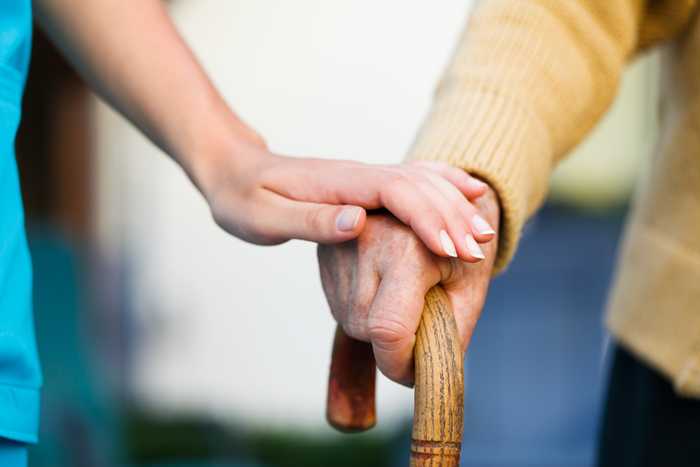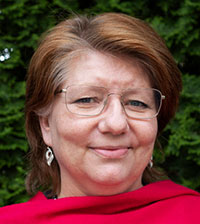Maria Hedman has interviewed elderly people who live at home but are diagnosed with chronic diseases like MA, Parkinson, stroke and heart disease. She wanted to find out what autonomy and participation meant to them.
The study showed that health and wellbeing influence the experience of autonomy and, above all, that autonomy presupposes a sense of participation. For instance, when a vein test is needed one could ask if it is convenient to take the test now and explain the reasons for taking the test. Similarly, when an elderly person is discharged from the hospital, it is important to explain the reasons behind the decision.
To achieve this, healthcare staff need more training in supporting the elderly in staying healthy.
“The elderly need to feel safe and in control over their health, understand symptoms and what is happening to them. Moreover, they need to be asked to participate in decisions.
A team around the elderly person
Maria would like to see an improved team work across professional borders including physicians, specialist nurses, therapists, assistant nurses, but also those involved in care needs assessment and home help services.
“A team should surround and support the elderly person, who then knows everyone involved and feels recognised, rather than having to start all over again all the time.”
In her experience, a nurse specialised in care for the elderly gains a deeper insight into how diseases affect everyday life and how to assist the elderly person. Such a nurse is more confident in making adequate assessments of symptoms and can avoid what can be exhausting, unnecessary visits to the A&E for the elderly one.
“It is also easier to build a close collaboration with a physician when the nurse has a gained deeper insight and has become more distinct in her profession in such discussions. It is an incredibly valuable programme, which we also have here in Gävle.”
Home help services need to develop
The home help services also need to develop, Maria Hedman underlines. When they care for elderly people who are quite ill in their homes, they need some knowledge in nursing.
“If everyone involved in the care is part of this team, the elderly person feels safer, confident that she is known by everyone in the team and that they know what any symptoms might mean. Lifting the home help services up to the level of assistant nurses and making them part of this team around the one affected by multi –disease would promote the development enormously and wouldn’t cost more.”
Seeing the possibilities
Maria claims that we have resources that we don’t think about and there are simple measures that wouldn’t cost much.
“To be given time to dress oneself, time to sit down and talk about and plan the day. What is happening today and what can we participate in? Because it is participation in everyday life which is so important. Moreover, we always think that we need to rebuild our surroundings, but in city environments there are small parks, we don’t have to build one, and the elderly can also visit the forests that surround us. We need to see the possibilities around us and not get stuck in what seems impossible as that won’t take us anywhere.”
“What are your dreams?”
“Very few individuals demand the impossible,” Maria says. “We could even ask, what are your dreams? Probably, they concern one’s everyday life. In my experience, dreams concern making decisions about one’s everyday life; for instance, to be able to go outdoors and listen to the birds sing. This is a time in life, when we should be given the opportunity to enjoy what we can, and that is important also to the staff. An everyday pleasure could be having a cup of coffee together.”
We face the end so differently
Maria stresses that the age group of people over 65 needs to be looked at in a more nuanced way. There might be a difference of 30 years in age and they may have different needs and wishes to fulfil in this time of life which is near to the end.
-------------------------------------------------------------------------
Maria Hedman defended her dissertation "Autonomy and Participation in Care For Older People : Descriptions by Older People, Registered Nurses, Case Managers, First Line Managers and Local Authorities Senior Medicine Advisors" at the University of Uppsala 22 maj.
-------------------------------------------------------------------------







